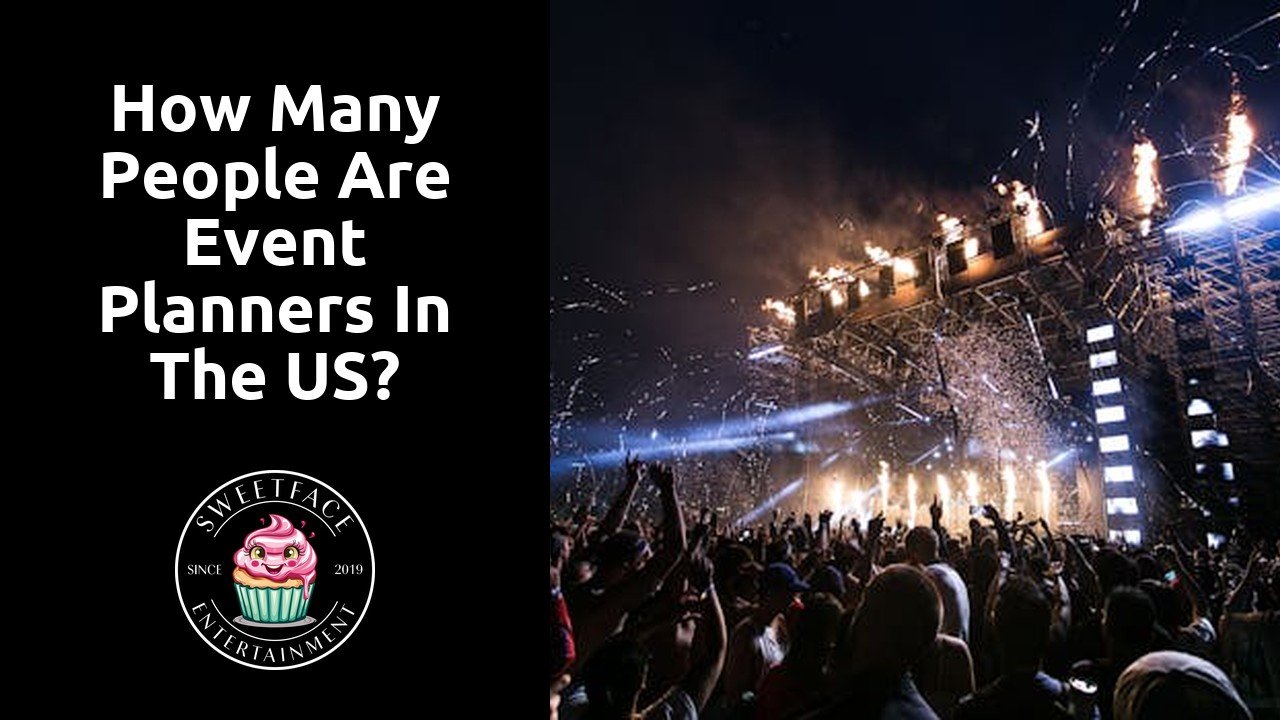Table Of Contents
Challenges Faced by Event Planners
Event planners in the United States encounter a multitude of challenges in their line of work. One notable challenge is managing the varying expectations of clients while striving to meet their specific event hosting needs. Balancing clients’ visions with practical considerations such as budget constraints and venue limitations can be a delicate task that requires finesse and strong communication skills. Furthermore, unexpected issues that arise during the planning process, such as last-minute changes or unforeseen logistical hurdles, can test even the most seasoned event planners’ abilities to adapt and problem-solve efficiently.
Another significant challenge faced by event planners is the intense pressure to deliver flawless events while adhering to strict timelines. Coordinating the myriad details involved in event hosting, such as booking vendors, managing RSVPs, and ensuring seamless execution on the day of the event, can be extremely demanding. Additionally, the competitive nature of the event planning industry means that planners must constantly strive to stay ahead of trends and offer innovative solutions to stand out in a crowded marketplace. Juggling these various challenges requires a combination of organizational prowess, creative thinking, and a strong ability to multitask effectively.
Mitigating Risks and Ensuring Client Satisfaction
One of the critical aspects of being a successful event planner is mitigating risks to ensure client satisfaction during the event hosting process. It is imperative to identify potential challenges that may arise and proactively address them to maintain a seamless and successful event. Being prepared for unexpected situations, such as last-minute cancellations or logistical issues, can significantly impact the overall outcome of the event and the client’s experience.
To ensure client satisfaction, effective communication is key throughout the event planning process. Clear and concise communication with clients regarding expectations, budgets, timelines, and any changes that may arise is crucial for a successful event hosting experience. Additionally, establishing a solid relationship with vendors and suppliers can help in delivering high-quality services and products, ultimately contributing to a successful event and client satisfaction. By proactively addressing risks and maintaining open communication channels, event planners can enhance the overall event hosting experience for their clients.
Networking Opportunities for Event Planners
Networking is a crucial aspect for event planners to expand their connections, gain insights into the industry, and foster collaborations. One effective way for event planners to network is by attending industry-specific events and conferences. These gatherings provide a platform for professionals to engage in discussions, share experiences, and stay updated on the latest trends in Event Hosting. Moreover, participating in networking events allows event planners to showcase their skills, build credibility, and potentially attract new clients or partnerships.
In addition to attending industry events, leveraging online networking platforms can also be beneficial for event planners. Social media platforms such as LinkedIn and Facebook groups dedicated to event planning offer opportunities to connect with fellow professionals, engage in meaningful conversations, and even seek advice or support when dealing with challenges related to Event Hosting. By actively participating in these online communities, event planners can establish their presence, demonstrate expertise, and stay connected with the dynamic landscape of the event planning industry.
Joining Professional Associations and Conferences
Joining professional associations and attending conferences can greatly benefit event planners in the industry. By becoming a member of reputable organizations, such as the International Live Events Association (ILEA) or the Meeting Professionals International (MPI), event planners can gain access to valuable resources, networking opportunities, and industry insights. These associations often organize conferences, workshops, and training sessions that can enhance a planner’s skills and keep them up-to-date with the latest trends in event hosting.
Attending industry conferences is another valuable way for event planners to expand their knowledge, connect with other professionals, and stay informed about emerging technologies and best practices in event hosting. Conferences bring together experts and enthusiasts from various sectors of the industry, providing a platform to exchange ideas, showcase innovations, and build partnerships. By actively participating in these events, event planners can gain valuable insights, broaden their professional network, and stay competitive in the ever-evolving field of event hosting.
Promoting Your Event Planning Business
Promoting your event planning business can significantly impact your success in the industry. Effective marketing strategies and tactics play a crucial role in attracting potential clients and establishing your brand in the market. Utilizing social media platforms, such as Instagram and Facebook, can help showcase your previous work and engage with a wider audience interested in event hosting services. Additionally, collaborating with influencers or local businesses can expand your reach and bring in new clientele.
Networking opportunities are abundant for event planners seeking to promote their services. Joining professional associations and attending industry conferences can provide valuable connections and insights into the latest trends in event hosting. Building relationships with other professionals in the field can lead to referrals and partnerships that can elevate your business to new heights. By actively participating in networking events and staying up-to-date with industry developments, you can position your event planning business for long-term success.
Effective Marketing Strategies and Tactics
To successfully market an event planning business, utilizing digital marketing strategies is essential in today’s digital age. Leveraging social media platforms such as Instagram and Facebook can help reach a broader audience and engage with potential clients. Sharing visually appealing content showcasing past events and client testimonials can attract new customers and build credibility within the industry. Additionally, investing in email marketing campaigns can help nurture leads and keep your business top of mind when potential clients are in need of event hosting services.
Collaborating with local businesses and organizations can also be a powerful marketing strategy for event planners. By forming partnerships with venues, caterers, and other event-related businesses, you can tap into their existing customer base and expand your reach. Offering special promotions or packages in collaboration with these partners can incentivize their customers to consider your services for their next event hosting needs. This not only helps in increasing brand awareness but also establishes your business as a trusted and reliable partner in the event planning industry.
FAQS
How many event planners are there in the US?
As of [latest available data], there are approximately [insert estimated number here] event planners in the United States.
What is the job outlook for event planners in the US?
The job outlook for event planners in the US is projected to grow [insert percentage] from [current year] to [future year]. This growth is due to the increasing demand for event planning services across industries.
Are there any specific qualifications required to become an event planner in the US?
While formal education in event management or hospitality can be beneficial, it is not always a strict requirement to become an event planner in the US. Relevant experience, strong organizational skills, and a keen eye for detail are often valued more in this field.
How can one become a certified event planner in the US?
To become a certified event planner in the US, one can pursue certifications from recognized organizations such as [insert names of reputable certifying bodies]. These certifications typically require passing an exam and meeting certain experience or education criteria.
What is the average salary range for event planners in the US?
The average salary range for event planners in the US varies depending on factors such as experience, location, and the scale of events managed. On average, event planners in the US can expect to earn between [insert lower range] to [insert higher range] annually.
Are there any notable trends shaping the event planning industry in the US?
Yes, some notable trends shaping the event planning industry in the US include the increasing emphasis on sustainability practices, the integration of technology for event management, and the rise of experiential events that offer unique and immersive experiences for attendees.
How has the COVID-19 pandemic impacted the event planning industry in the US?
The COVID-19 pandemic has significantly impacted the event planning industry in the US, leading to the cancellation or postponement of many in-person events. Event planners have had to adapt by transitioning to virtual and hybrid event formats to comply with health and safety guidelines.
What are some key skills required to succeed as an event planner in the US?
Key skills required to succeed as an event planner in the US include strong communication and interpersonal skills, excellent time management and organizational abilities, creativity in event design and execution, and the ability to remain calm under pressure when handling unexpected challenges.
How can aspiring event planners gain relevant experience in the US?
Aspiring event planners in the US can gain relevant experience by volunteering at events, internships with event planning companies, or taking on event coordination roles in other industries. Building a strong portfolio of successful events is crucial for establishing credibility in the field.
What are some common misconceptions about event planners in the US?
Common misconceptions about event planners in the US include that it is a glamorous job involving only party planning, when in reality, it requires meticulous planning, coordination, and attention to detail. Additionally, some may underestimate the level of stress and pressure event planners face to ensure successful outcomes for their clients.”””
Related Links
Event Hosting
Where is the best place to be an event planner?
How much do event planners charge in USA?
How many event planners are in Florida?

